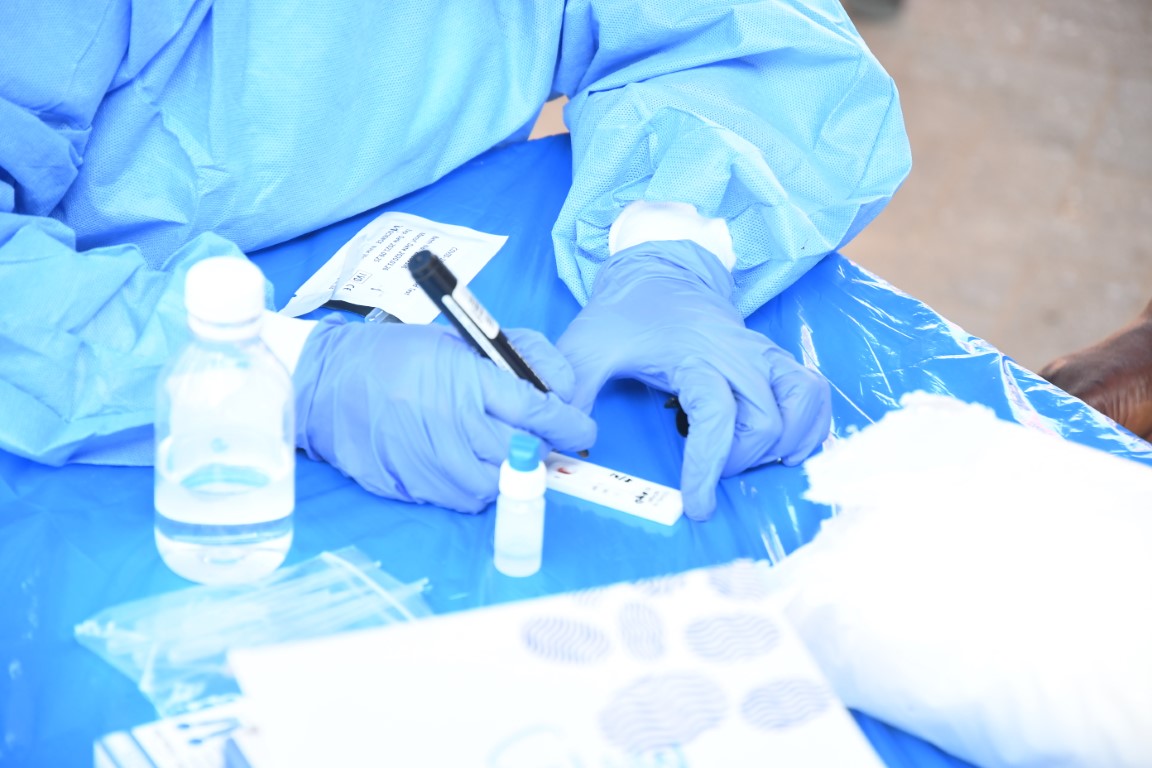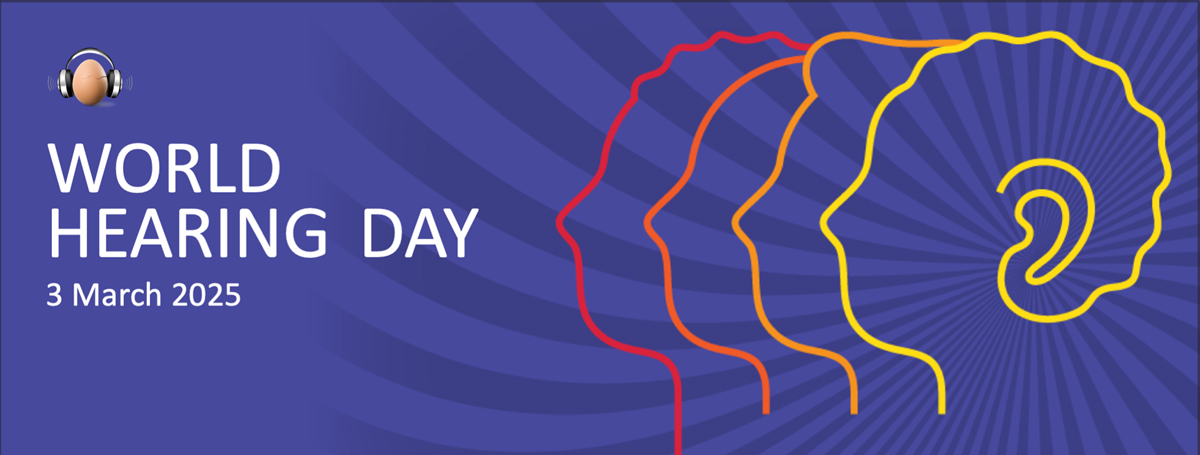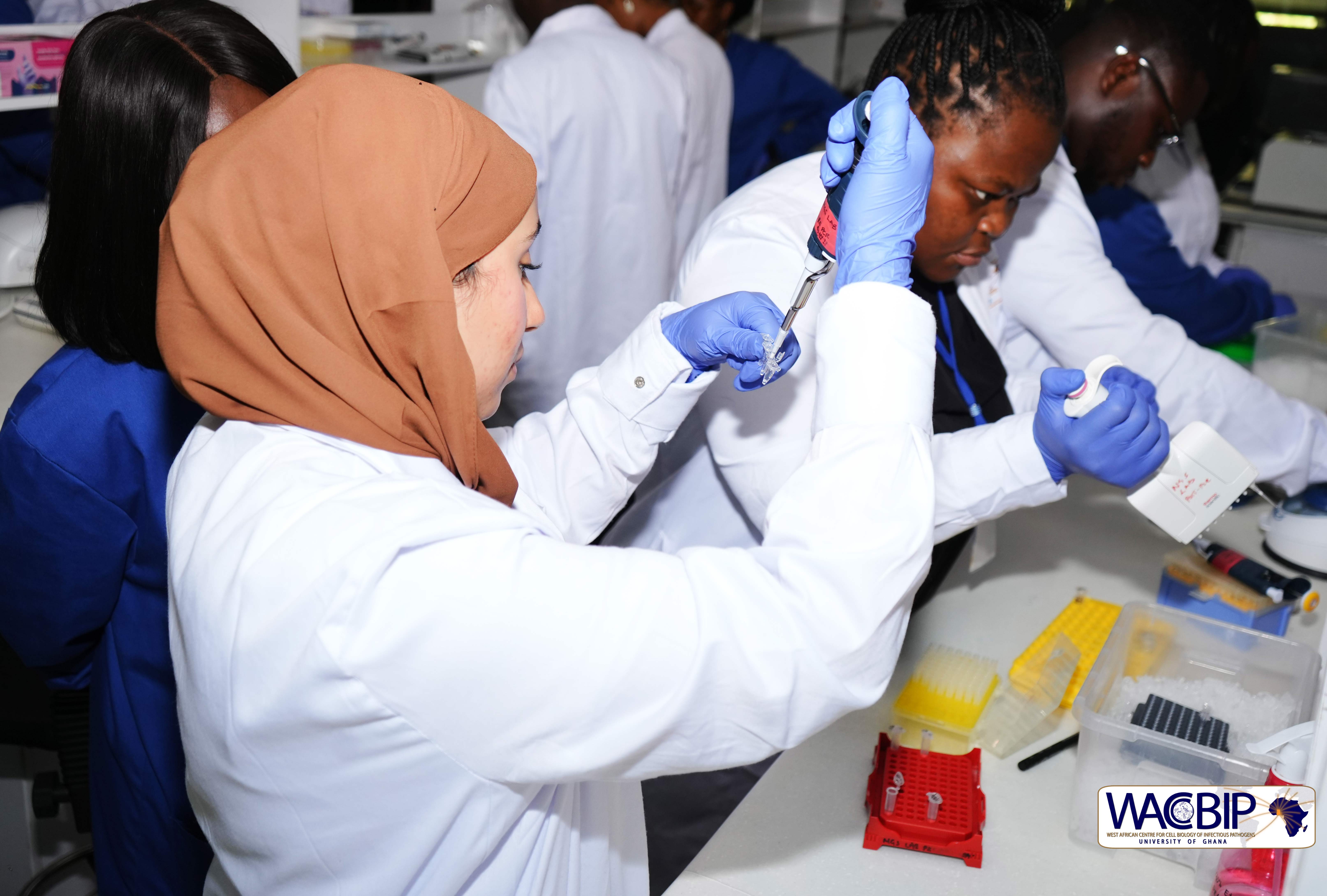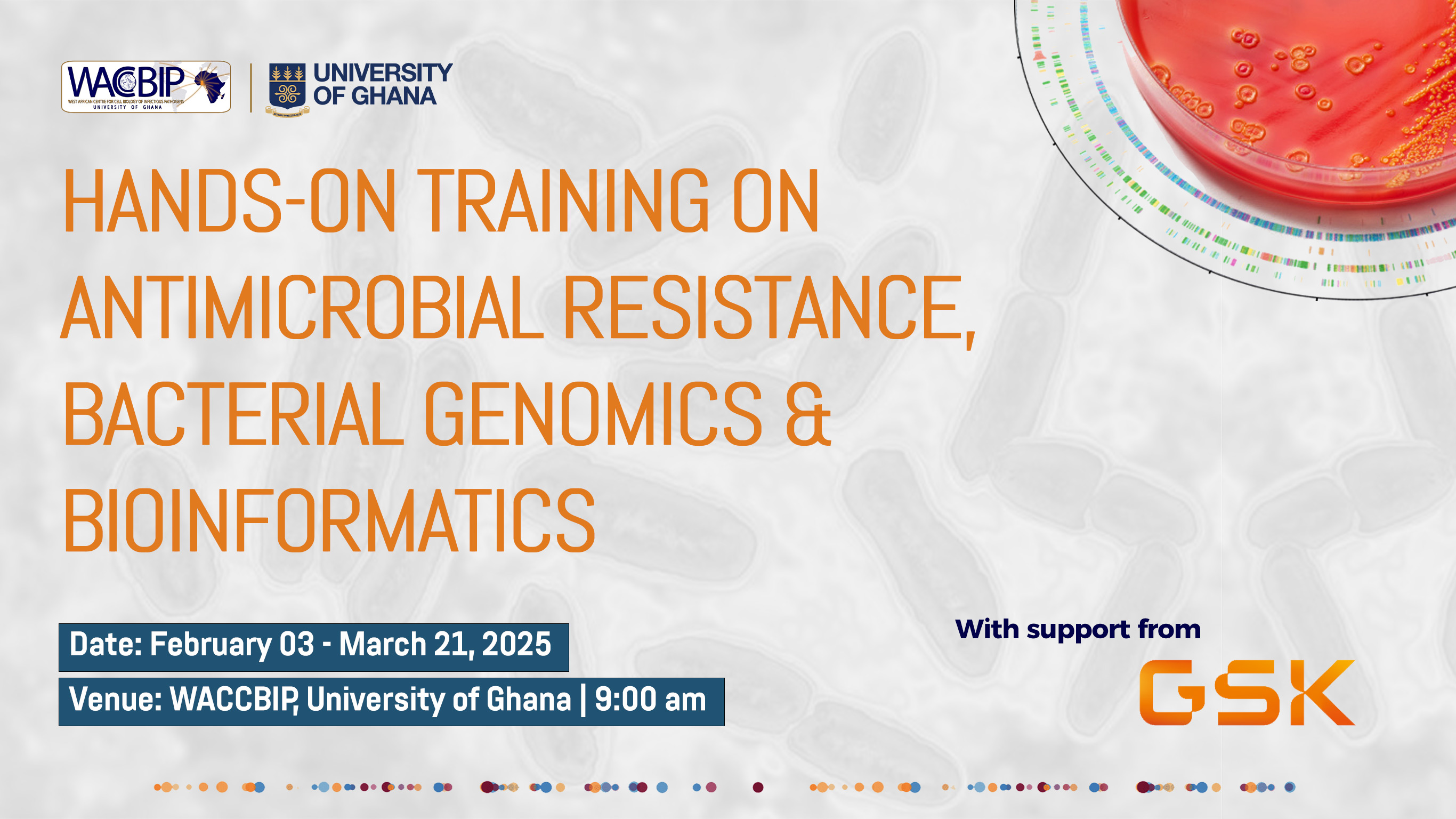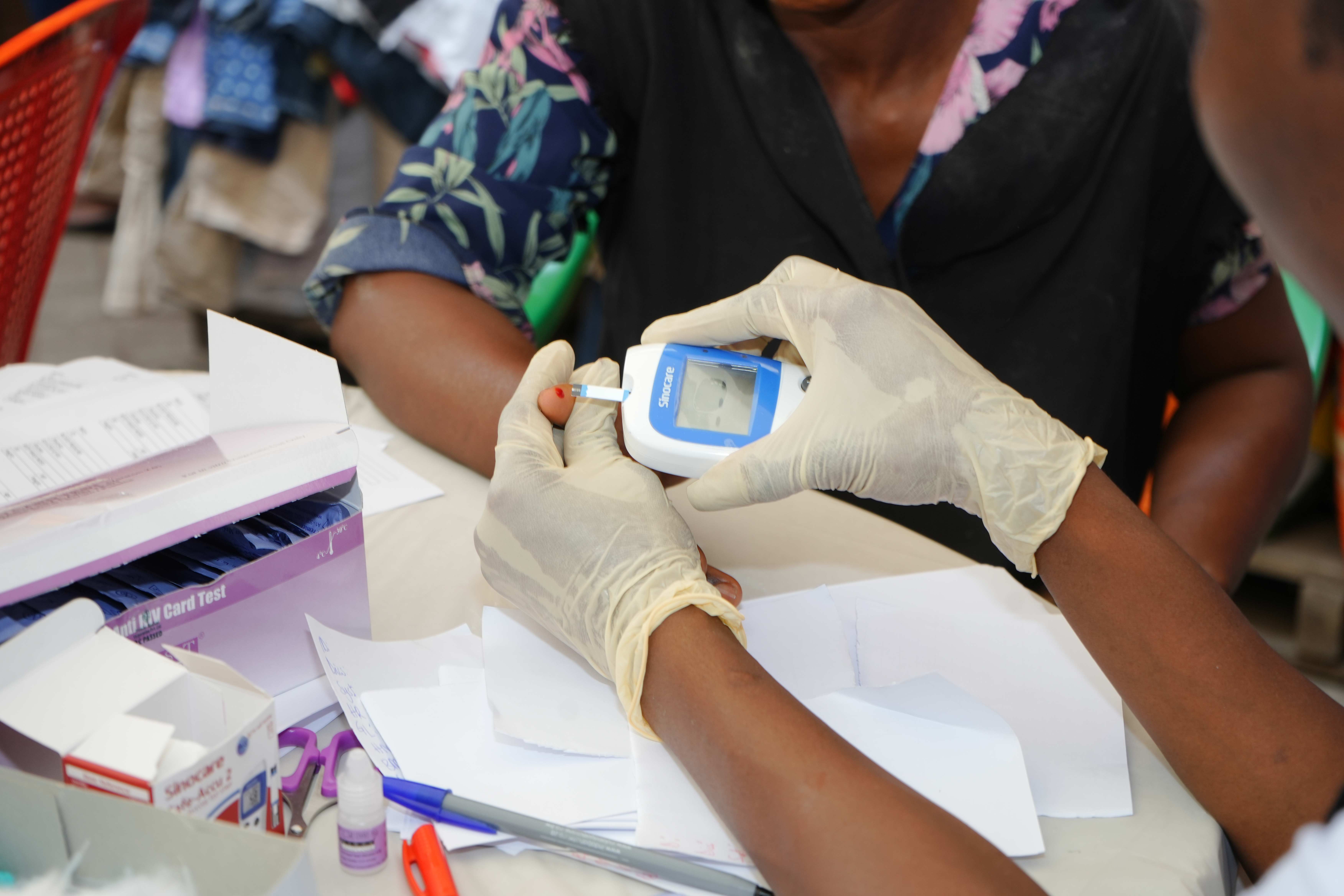The West African Centre for Cell Biology of Infectious Pathogens (WACCBIP), from August 1 -30, completed a series of outreach events at various hospitals, municipal markets and shopping centres in selected suburbs of the Greater Accra and the Central Regions of Ghana, providing free screening for exposure to SARS-CoV-2, the virus responsible for COVID-19.
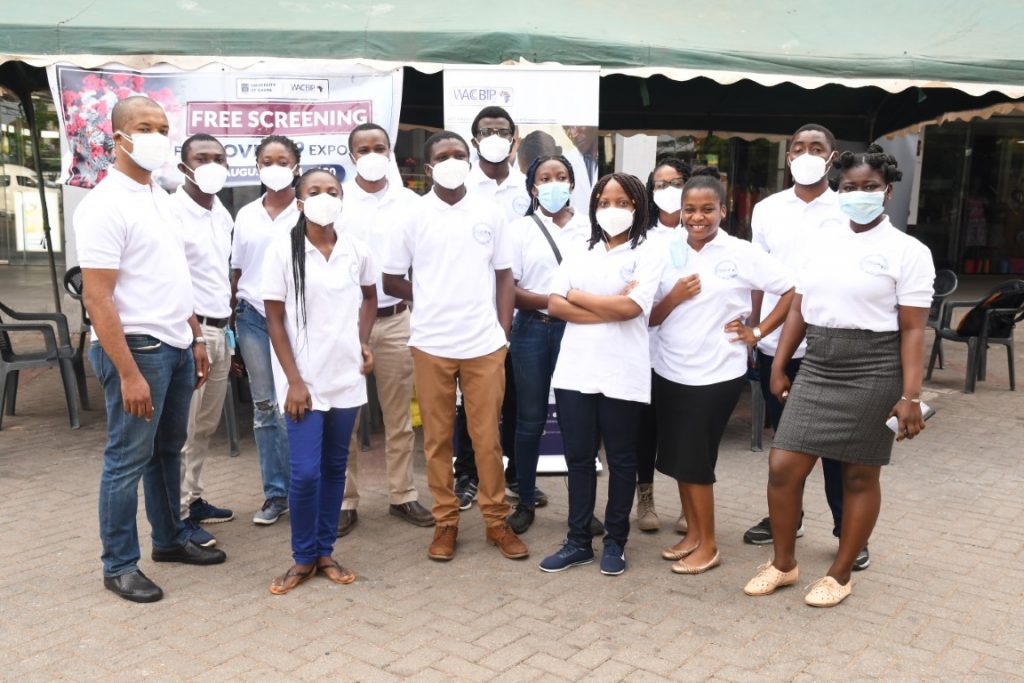
The COVID-19 exposure screening team.
The exercise was part of the data collection process under a WACCBIP study which aims to estimate, using serological analysis, the level of COVID-19 exposure among the priority population. Findings from the study would help in developing rapid diagnostic tools and therapeutic agents for the management of COVID-19.
The WACCBIP team visited the Madina market, the Kasoa lorry station, the Kaneshie market and lorry station, the Accra Mall, the A&C Mall, and selected hospitals in Accra. More than 1000 people were screened overall.
Professor Gordon Awandare, Director of WACCBIP, spoke about the relevance and timeliness of the exercise and the larger study. He emphasized the importance of conducting antibody tests, as those are an efficient way to determine the level of exposure to the disease within the country, especially since many of those infected are unlikely to get tested unless they show symptoms.
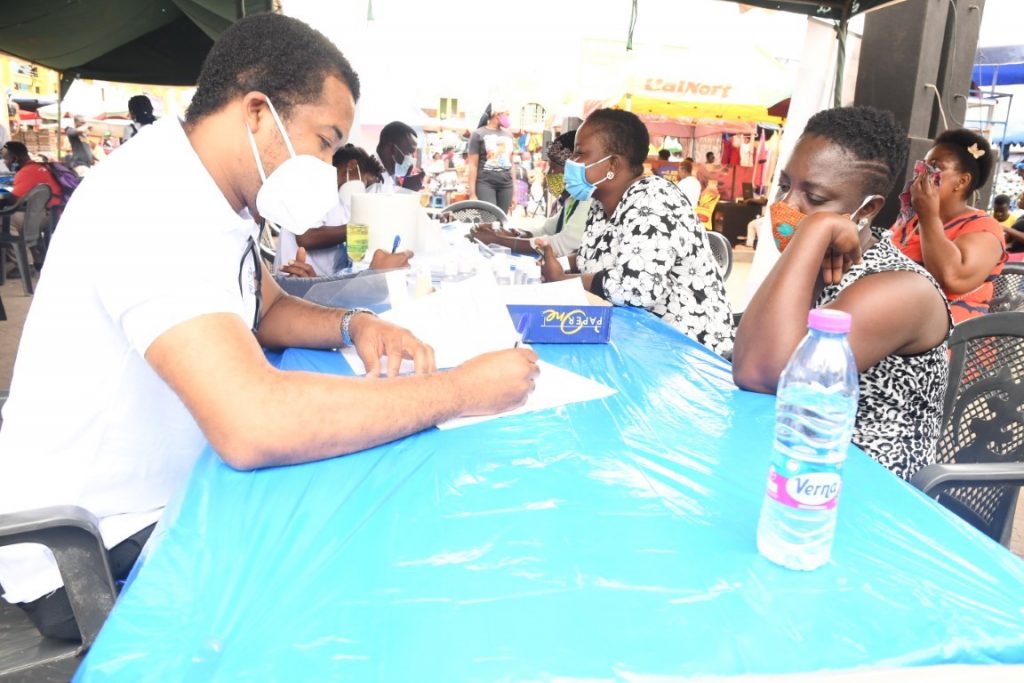
The team at the Madina market[/caption]
“This was an important exercise for us to do because, right now, the country is relying mainly on PCR testing. So, that means we are missing out on anybody who doesn't show up; and, as we know, over 90 percent of the infected people are asymptomatic, which means they won't go to the hospital,” Prof. Awandare said.
He added that, through the antibody studies, scientists at WACCBIP will get a proper gauge of the level of actual exposure in the population and the percentage of people who have been in contact with the virus.
“In addition, because we've done different groups of people and different places, those will give us an insight into the populations that are most vulnerable and the populations that have been affected the most,” he said. “Hopefully, we'll be able to continue doing this on an ongoing basis to monitor exposure in other regions.”
Highlighting the importance of the screening study, Dr. Peter Kojo Quashie, a senior research fellow at WACCBIP, explained that the exercise was a necessary step towards exploring the distribution and changes in the outbreak of the disease within the Ghanaian population.
“We know that an important part of epidemic control is knowing where you have high levels and low levels of infection and, in Ghana, we recognized that there wasn't that massive level of community screening,” Dr. Quashie said.
[caption id="attachment_6212" align="aligncenter" width="1024"]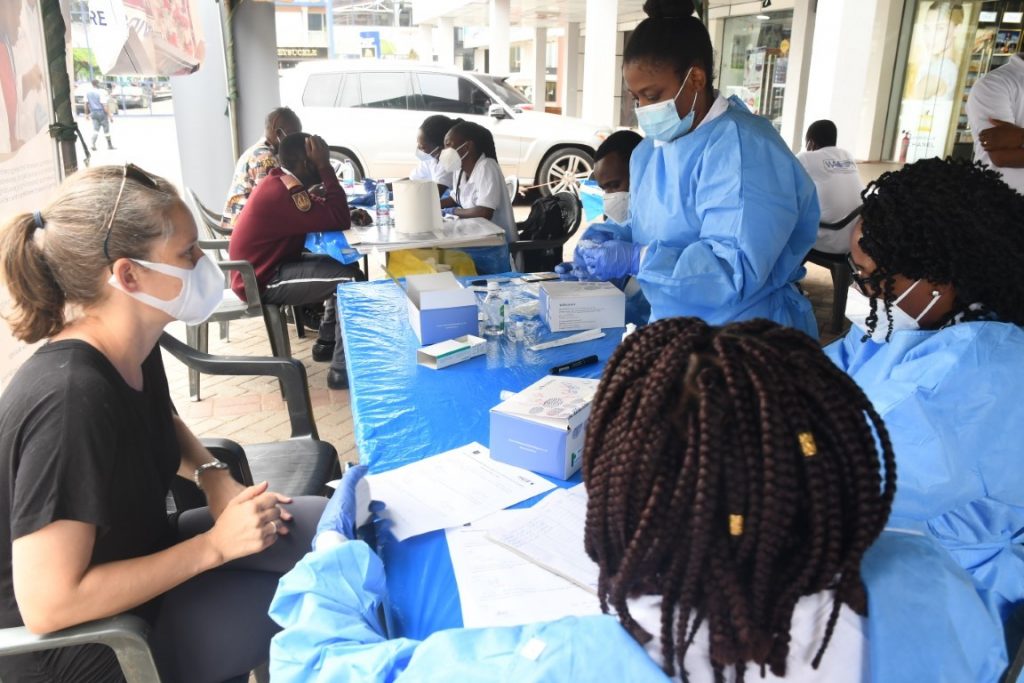
The team at the A&C Mall
He explained the process involved in selecting the test kits and the locations for the screening exercise, providing details on the motivations behind the selections. Dr. Quashie said that the Greater Accra Region was selected because it has the highest COVID-19 disease burden. He also explained that the team was looking at markets versus malls in the region as a way of exploring different levels of socioeconomic status and how they may relate to the disease burden.
“We realize that the best method when screening is to use a cheap, easily employable tool. Even though test kits are not good for testing [as in diagnostics], they have some utility for screening for antibody production in people. So, basically, we validated a kit, and this is one of the best,” he said.
“We targeted some health care institutions [including] educational and research facilities. We screened students and staff here at WACCBIP, screened staff involved in COVID-19 testing at the Noguchi Memorial Institute for Medical Research, people who had direct interaction with COVID-19 patients at the University of Ghana Medical Centre, [and] also medical personnel at Korle-Bu and Ridge Hospital,” Dr. Quashie said. “We also went into the general population [and] did the Madina and Kaneshie markets/lorry stations and the Kasoa lorry station [which is] also a transportation hub between the Central and Western Regions. Then to the malls, [we visited] A&C Mall because it is right in the Ayawaso West District, which is a hotspot for COVID-19 infection, and the Accra Mall because it has people coming from all over the city.”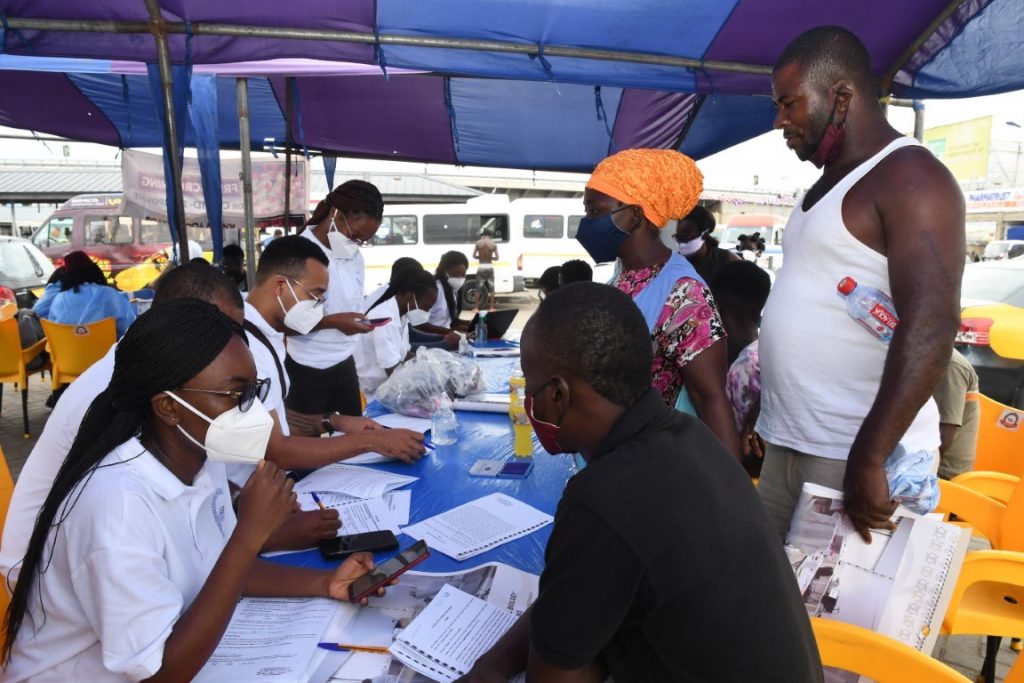
The team at the Kasoa lorry station
Explaining the implications of the study, Dr. Quashie said this would help identify the risk factors for testing positive for COVID-19. He said that the data acquired will help identify hotspots for high levels of COVID-19 transmission based on where the participants live.
“This is a sort of primer, which we hope to expand, to do more places to be able to identify hotbeds of infection and also help the government to better target where to do any future mass testing or where to do some community screening and community engagement,” Dr. Quashie said.
A beneficiary at the A&C Mall, Mr. Yaw Boateng, expressed his satisfaction with the screening process and said that he was happy to have participated in the exercise with his family.
“It was good. I thought it would be a long line [of people] but it was not. So that is good. I was negative but I was hoping to be positive because it would mean that I must have gotten [exposed] and maybe built up some immunity and then I can relax a little bit,” Mr. Boateng said.
“My wife's family is from the US. We were telling her mom, who is in California, that we are doing this today and she was very surprised. They do not have that. You cannot just walk up to a Centre and get a 15-minute antibody test, because she would love to get a test. So, I am very excited and happy that you are doing this [here]. It is a sign of progress. I think we should do more. I am very impressed.”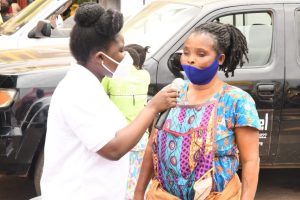
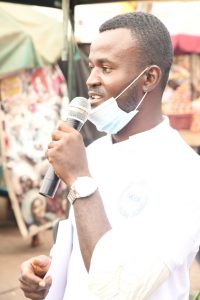
WACCBIP researchers also busted some myths and educated participants on the virus.
[rev_slider alias="COVID Exposure"]

